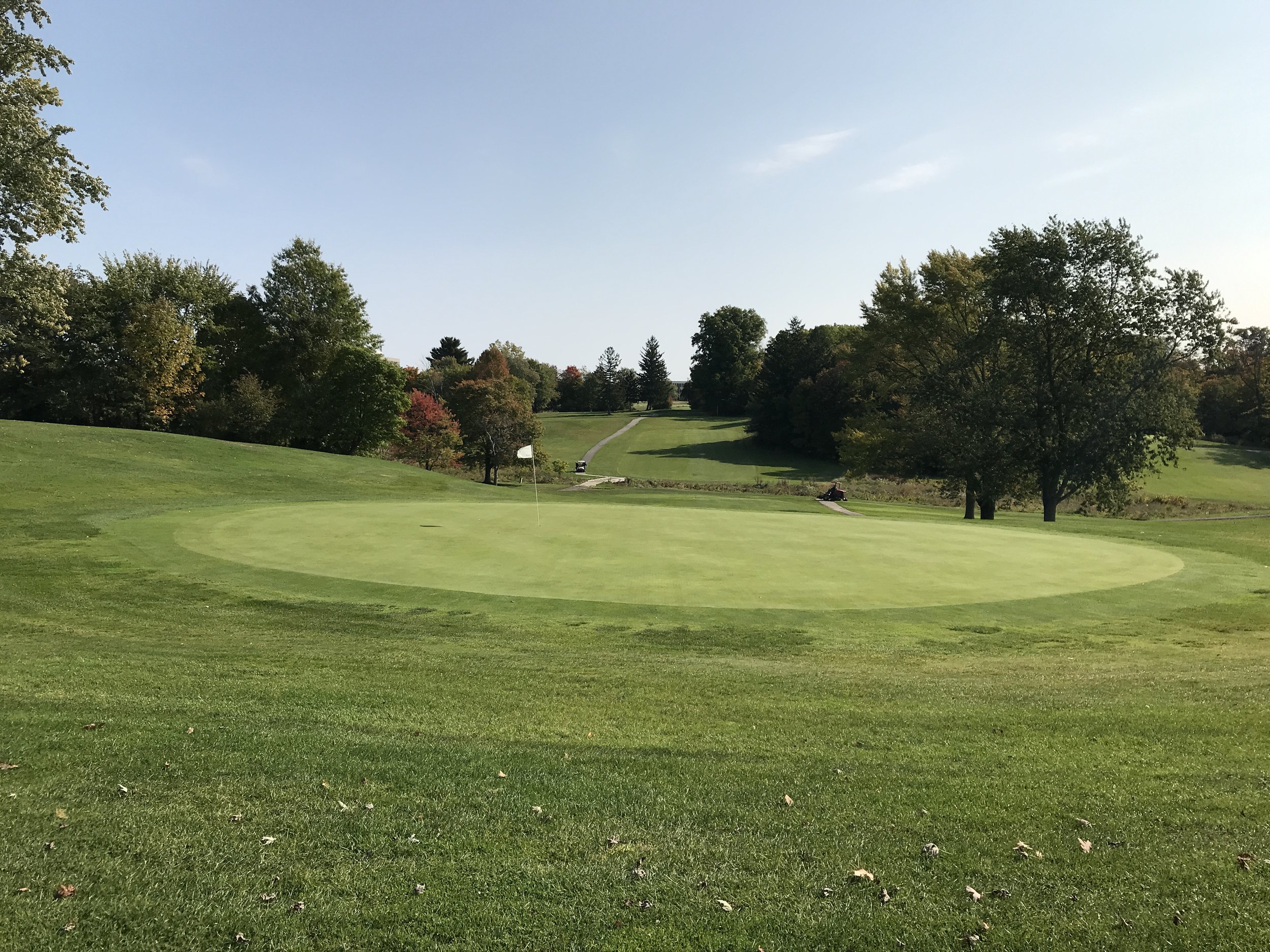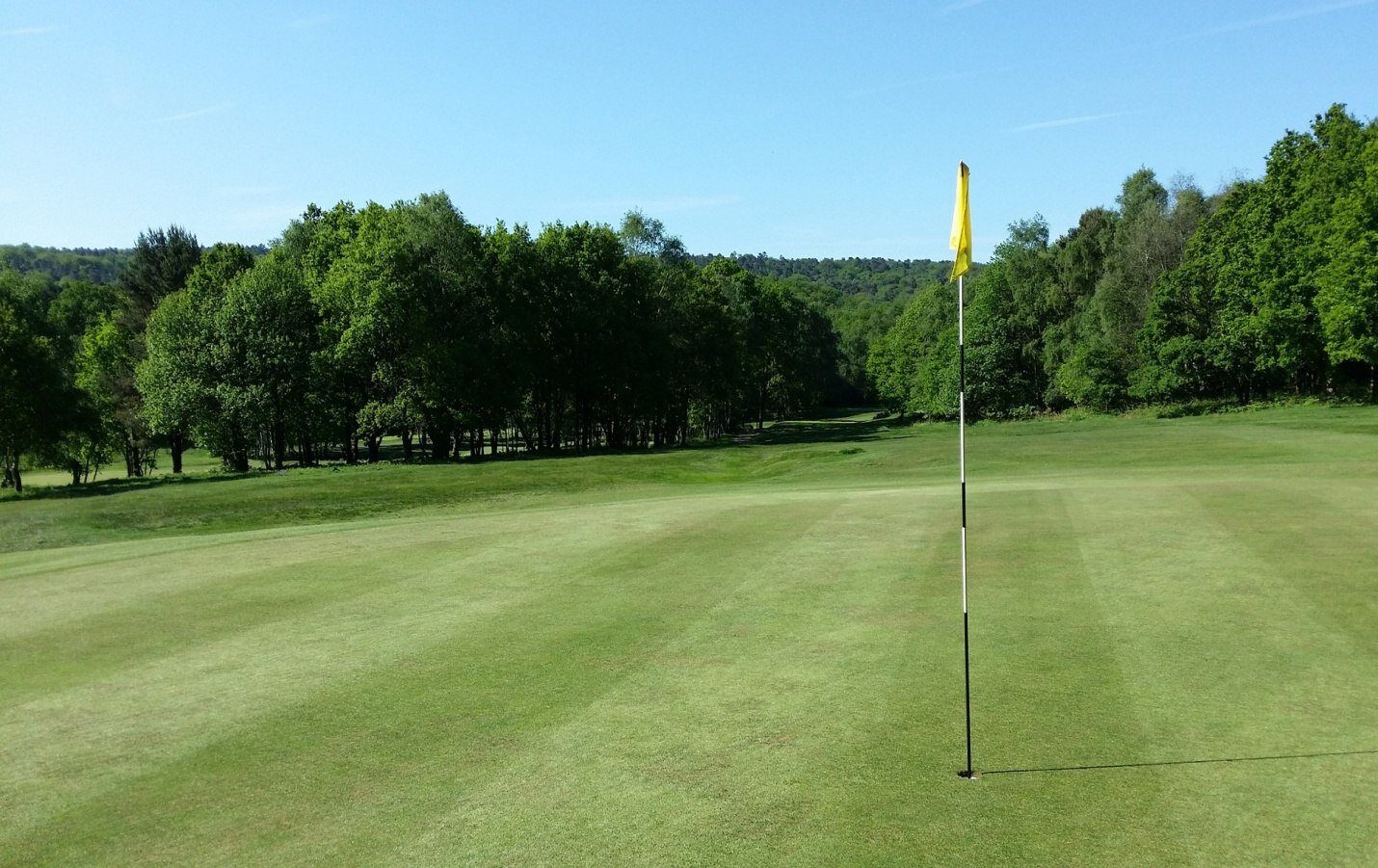Changing golf cups or cutting holes in the course is one of the most essential jobs while maintaining a golf course. The greens on the course are very valuable and they are prone to wear and tear. Therefore this job must be done carefully and meticulously.
Step-by-Step Guide
1.Select the location
The location of the new cup should be chosen carefully. Refer to the pin sheet of your golf course and select a location where a hole hasn’t been cut recently. Once you have selected the general location, follow the USGA suggestion, to make sure “the two to three feet radius around the hole is as level as possible, of uniform grade,” and then mark this point.
2. Cut the hole
Place the cup cutter perpendicular to the surface at the marked location. Place your feet a shoulder-length apart, and push the cup cutter down straight. Twist it to the right and the left to make a clean cut. Lift the hole cutter carefully, making sure the plug of turf remains inside the sleeve of the cup cutter.
Another way of cutting a hole is to do it in two sections instead of one fell swoop. For this, place the cup cutter perpendicular to the turf at the marked location and then push it down to only about two inches. Remove this top part of the plug and place it carefully in a container. Go back to the cup and cut the remaining part of the cup. Keep this inside the sleeve of the hole cutter.
The second method helps in adjusting the level when you are filling the old cup. Cutting the plug in two parts makes it easier to add or remove parts of the plug to match the level of the turf at the old hole location.
3. Place the cup line
This step is pretty straightforward. Use a cup puller to pull the cup liner from the previous hole. Clean the cup liner properly and place it in the new hole. With a setting, tool press the cup liner properly into the new hole. Make sure the tool is pressed straight. The setting tool will ensure that the remaining turf around the cup is even. You can step on the setting tool to make sure the cup liner is placed fully inside the hole with a clean finish.
4. Fill the old cup
Insert the cup cutter which has the plug in its sleeve, into the old hole and release the plug into it. Make sure the level of this cup matches the level of the surrounding turf. In case of any differences, you can add or remove some part of the plug to achieve the correct level. If you use the second method of cutting the hole, the adjustment becomes easier.
Use a ball-mark repairing tool or a knife to mesh and knit the edges’ of the plug with the greens surrounding it. Tamp down the plug and sprinkle some water over it. This will make the plug indistinguishable from the turf surrounding it and promote faster regrowth.
5. Remove debris
Remove any plug residue or other kinds of debris around both the new and old cups. It is important to keep the greens clean and in quality condition.
6. Insert the flag
Now for the finishing touch. Inside the flag into the new cup. Make sure it is straight because no one likes a flag that’s tilted!
Why is Changing Cups Important?
If changing cups requires so much care and consideration then why should we do it frequently? There is a two-pronged reason for this.
Firstly, it is to protect the greens. Golf courses experience a lot of walking and treading around. Now imagine the position of the cups has not been changed for a couple of weeks. This means that golfers will tread the same areas multiple times a day throughout those two weeks. The amount of stress applied to these areas will be massive, leading to the breaking down of the turf. But this wearing down is only for these areas. The other greens are still lush.
Changing the position of golf cups regularly ensures that all areas of the course are put in rotation and stress is distributed evenly. This way no one location experiences more strain than the other. High-end golf courses change cups daily because of the volume of play they experience.
Additionally, constant use of the same holes damages the cups as well because of the number of times golfers reach in to pull out the ball. Thus the need to change cups frequently.
The second reason is one that is beneficial to golfers. Playing the same course every time can get old pretty fast. Changing the cups often adds variety to the course and keeps play interesting. This will also ensure that golfers will not leave your golf course and go searching for new ones that excite them.
Points to Consider
Changing cups is an exact process and there are certain things we need to keep in mind while doing it:
-
Make sure the location of the new cup does not have any heavy ball marks in its surrounding area. The turf should be healthy and not affected by any disease as well.
-
During wet seasons, or if wet weather is forecasted, place the new cups in a location where puddles will not form easily.
-
The holes should be distributed fairly evenly throughout the course with a balance of easy and difficult holes to keep play interesting.
-
The holes that are cut should be of top quality. The edges should be tight and not crumble easily because the cups will be seeing a lot of use.
-
The old holes should be filled in the correct orientation. This ensures the grass on the plug grows in the same direction as the turf surrounding it.
We hope this detailed guide to changing cups makes the job easier for you and helps you avoid some common pitfalls of hole relocation. If you want to consult professionals who have been in the golf course management business for 30 years, you can contact us at DTE Golf®!





